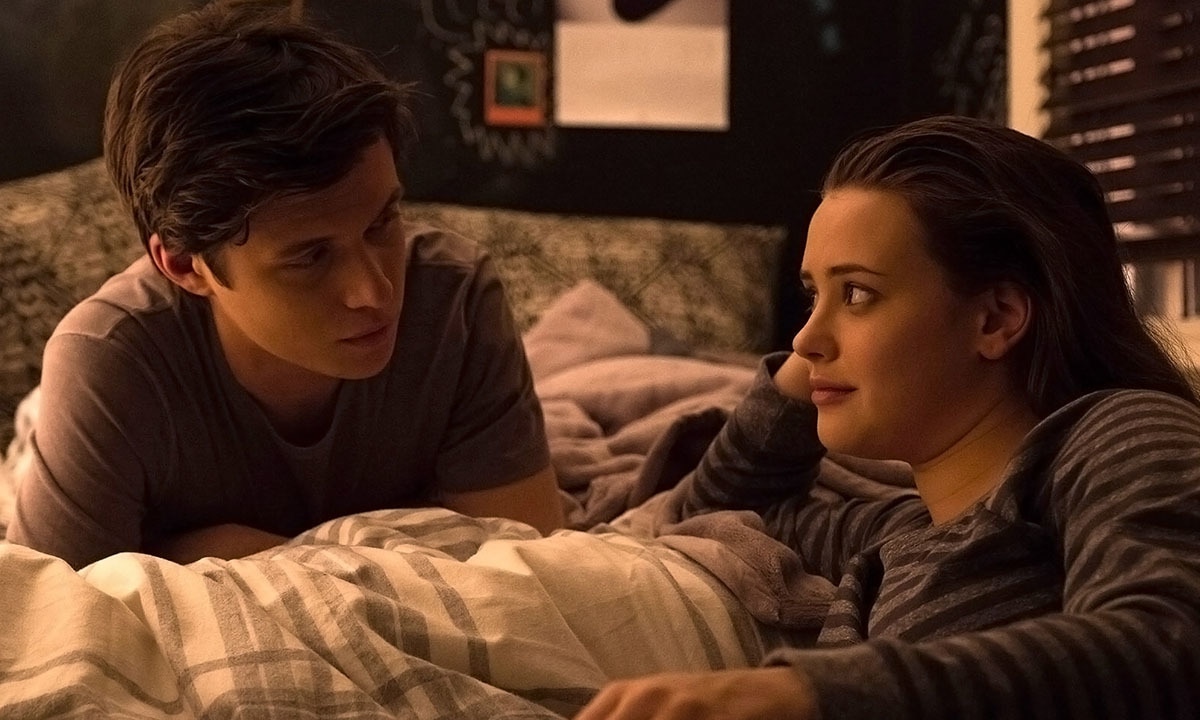
Hollywood stars Kristen Bell, Neil Patrick Harris and Matt Bomer recently did something unusual. They prepaid for screenings of a film, Love, Simon, in their hometowns so that cinemagoers could watch it for free. They had not worked on the film but they deemed it important and deserving of a wide audience.
This may seem strange when you consider that Love, Simon is a glossy coming-of-age flick in which two high school students fall for each other. There is, however, one key difference between this film and other mainstream teenage romcoms: its lead character is homosexual.
The quietly revolutionary Love, Simon is actually the first major studio-released teen film to feature a gay lead. Its story revolves around Simon (Robinson) who lives in suburban Georgia. He has a great group of friends, a sister “he actually likes” and parents who love him unconditionally. His life is perfect, except he has one big secret.
One day his best friend Leah (Langford) tells him about an anonymous confession posted online by a closeted gay student at their school. The post has been written by someone who calls themselves Blue. Simon picks a pseudonym for himself, Jacques, and writes to Blue. The two fall in love over email without knowing each other’s real identity.
Their secret relationship could have gone on indefinitely but for Martin (Miller), an awkward classmate of Simon’s, who accidentally reads one of his emails. Martin starts blackmailing Simon, demanding to be set up with his friend Abby (Shipp). Simon complies in order to hide his sexual identity. From then onwards he keeps betraying those closest to him to keep his own secret.
The lengths to which he goes to stay in the closet surprise Simon himself — as well as the audience. It is difficult to see what he is afraid of. His parents are as liberal as they come. At one point, we see his mother, Emily (Garner), preparing protest signs about taking down the patriarchy. His father, Jack (Duhamel), is an all-American white dad; he cracks bad jokes but shows no signs of homophobia. Yet Simon is scared that they may see him differently after he comes out.
Part of his fear seems to be rooted in seeing Ethan (Moore), his only openly gay classmate, being bullied at school. Ethan is closer to the flamboyant gay archetype we are accustomed to seeing on screen. Simon seems to think of him as too gay. “I wish he wouldn’t make it so easy for [the bullies],” Simon says. But Ethan does not see himself as a victim. He wittily responds to every attempt jock types make at shaming him for his sexuality.
Moore, who plays Ethan to great effect, is just one of the ensemble cast that brings the characters in the movie to life. Shipp is perfectly cast as the fierce yet vulnerable Abby and Robinson seems to effortlessly embody Simon. Both Garner and Duhamel make their presence felt as Simon’s parents, in spite of the limited screen time they get.

Love, Simon makes some fine points about how, in our heteronormative world, even the most well-meaning parents can struggle to see beyond traditional gender roles and identities. When, for instance, Simon finally finds the courage to sit his family down to have the talk, Jack asks, “Let me guess. You got somebody pregnant.”
It is these little details that make the film so of-the-moment in America. Simon does not face any major adversities; he does not necessarily feel unsafe coming out. Yes, he faces homophobia but he also finds allies and a support system in his peers and teachers. After his emails are leaked, the school principal (played by the always hilarious Tony Hale) greets everyone wearing a gay pride pin. When Simon finally tries to find who his pen pal Blue actually is, the entire school cheers him on. True to the genre, the story ends with a happily ever after.
Unlike last year’s critically acclaimed film, Call Me By Your Name, about a gay teenage boy set in 1983, Love, Simon shows what being a queer teenager in America is like in 2018. It is also very different from the queer cinema we are used to consuming. It does not deal with AIDS (who knew making a film about homosexuality without AIDS was even possible?); it does not delve too much into the battles queer people have to fight; it is not strictly about even coming out. Love, Simon simply shows teens being teens — coming to terms with who they are.
The film is a refreshing take on the often tired genre of teen romcom. It subverts many conventions but sticks to enough of them to normalise queer teenage romance for the mainstream. This attempt at mainstreaming is both the movie’s biggest strength and its glaring weakness. Here is why.
At the beginning of the film Simon declares, “I am just like you, I have a totally perfectly normal life ...” But he is not just like everyone who will be watching the film. He is a white, upper-middle-class American boy with very liberal parents. Experiences of queer teenagers from other ethnic, racial and economic backgrounds may be very different from that of Simon’s.
It is, of course, too much to expect from a single film to represent all queer teenagers. What we need is more stories from people from diverse backgrounds. Love, Simon is definitely a big leap in the right direction but it needs many more follow-ups.
This article was published in the Herald's May 2018 issue. To read more subscribe to the Herald in print.










